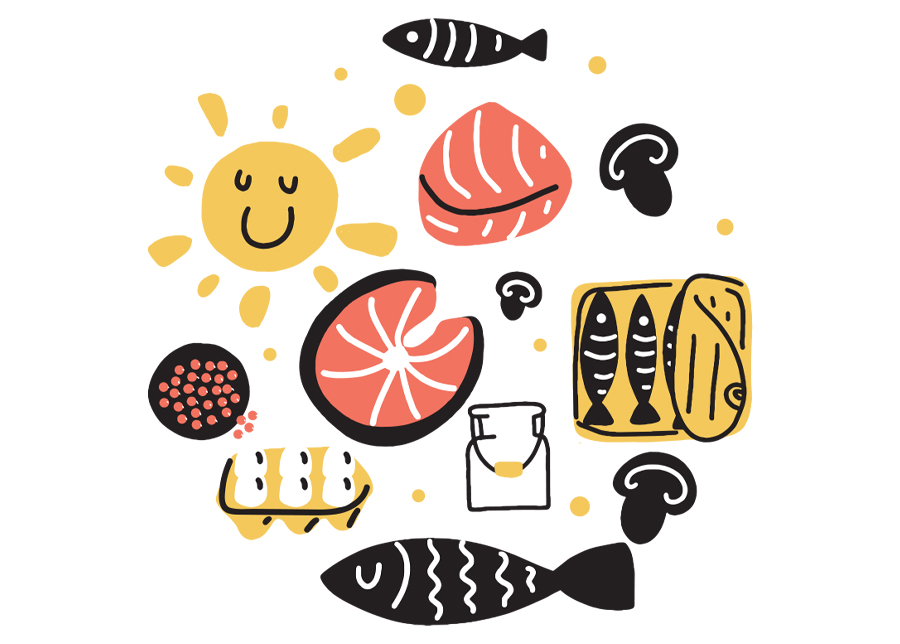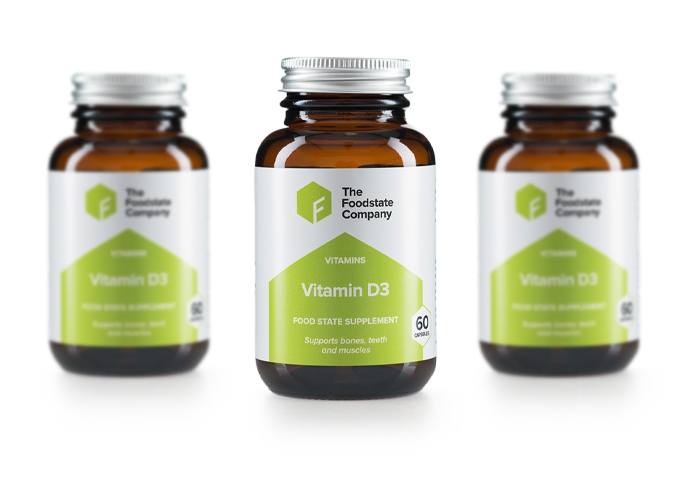As we go through the autumn months and head towards winter, it’s a very good time to give some consideration to your levels of Vitamin D.
With our natural sources of Vitamin D disappearing in northern climates, now is the time to think about supplementation, particularly as Europeans are estimated to be amongst those who are most deficient.
Here are 7 good reasons why Vitamin D is so important:
Life saving
We are all aware of the dangers of obesity, high blood pressure, heart disease, diabetes and those with inflammatory disease, but the dangers of Vitamin D deficiency is not getting the publicity it deserves. Statistics have been gathered during the pandemic about the increased risk of death for those who have been hospitalised. For those who develop pneumonia, the associational risk of death increases massively if you are Vitamin D insufficient and is even higher if you are deficient.
Strengthens bones
Vitamin D is one of several nutrients that contribute to the health of bones, especially with added Calcium. But beware of ordinary calcium supplements as their effectiveness is questionable at best. Only take Foodstate Calcium.
Reduces the risk of cancer
Scientific studies found that insufficient levels of Vitamin D could lead to a significant risk of developing cancer. There is also evidence that a higher intake of Vitamin D may be helpful in preventing and treating diseases other than cancer, such as high blood pressure, fibromyalgia, diabetes mellitus, multiple sclerosis and rheumatoid arthritis.
Helps reduce high blood pressure
People with low blood levels of Vitamin D may be at an increased risk of higher blood pressure – a problem that could be easily remedied with supplements. In the UK alone, there are an estimated 10m people with hypertension. The condition is a major risk factor for cardiovascular disease, which causes almost 50% of deaths in Europe.
Pain reduction
Recent studies have linked Vitamin D to a reduction of chronic pain, lending to calls for increased fortification or supplementation of the nutrient in diets.
Reduces the development of type 1 diabetes
With type 1 diabetes on the increase, especially in Europe, Vitamin D supplementation may reduce the onset of this disease in children by 30%.
Low Vitamin D levels linked to poor physical performance
This is particularly relevant to older people who show a clear correlation between poor physical performance and a Vitamin D deficiency.
So how do you ensure you are getting enough Vitamin D?
Diet
Meat, oily fish, fortified cereals and dairy products, eggs and certain mushrooms (exposed to UV light) are all high in Vitamin D.
Get more sun
Natural sunlight is the cheapest way of getting sufficient Vitamin D. Oil under the skin mixes with sunlight to naturally generate Vitamin D. Burning should always be avoided, of course.
Supplements
If your diet doesn’t provide sufficient Vitamin D and you prefer to avoid the sun (or cover up with sunscreen) then supplementation is advised.
Foodstate Vitamin D - The Best Type Of Supplement
The cheapest forms of Vitamin D supplements are sourced from animal fat or irradiated cattle brains!
We source ours from lanolin (sheep’s wool) and then take it through the Foodstate growth process to provide a fully-formed food version of Vitamin D that is much better absorbed, used and retained by the body.
We can’t rely on the sun during the autumn and winter months, so give your Vitamin D levels a boost with our Foodstate supplements.








